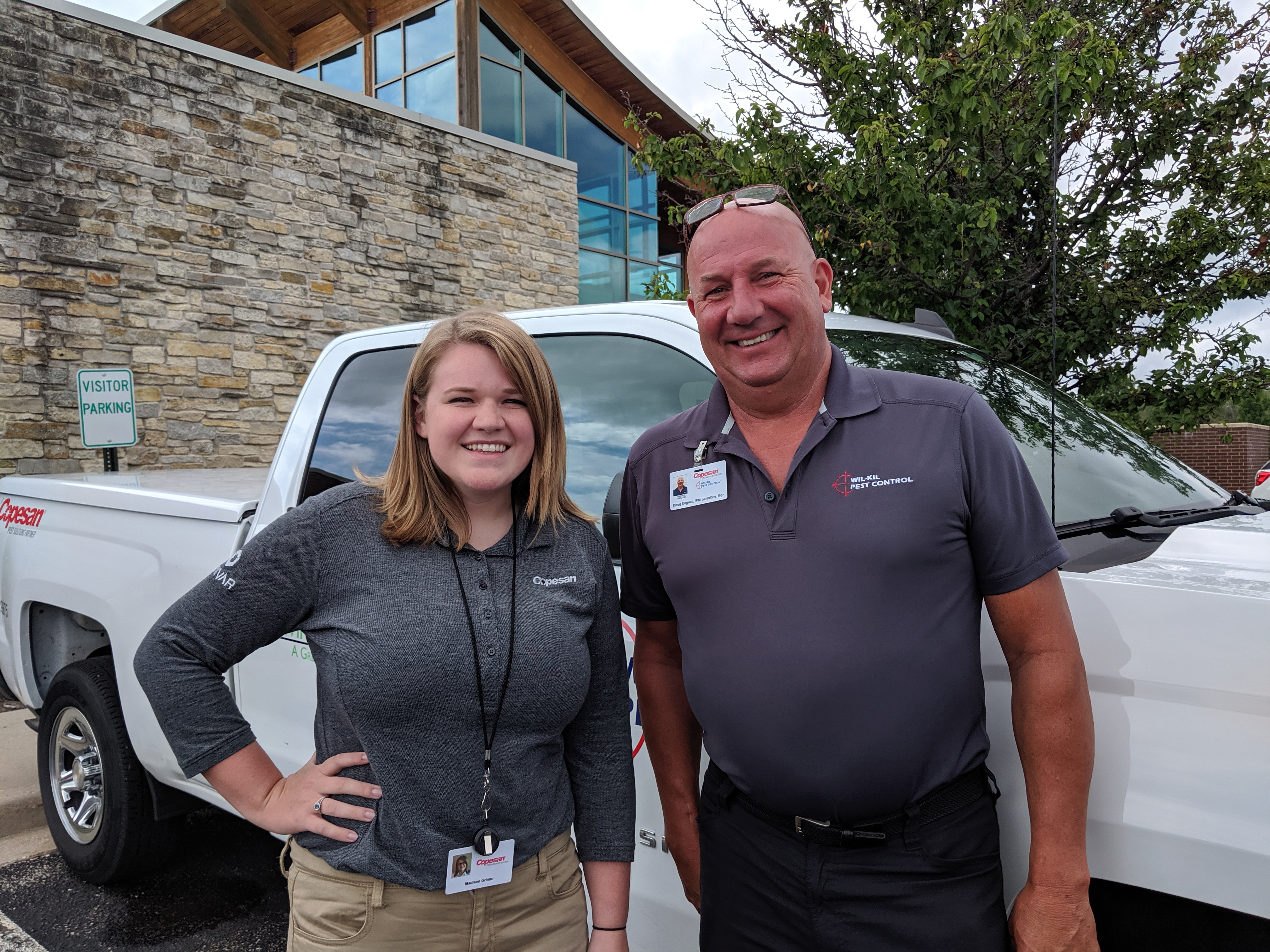By Madison Grimm
Editor’s Note – Fresh eyes are a gift! Check out the following blog post written by a brand new team member at Copesan, experiencing the pest management industry for the first time. It really puts it all in perspective and reminds us that a great pest management program requires strategic thinking and communication!
Have you ever wondered what it is like to be a pest management professional? Are you intrigued by insects and critters? Or do you simply want pests to be as far away from you and your business as possible? Either way, I would argue that the pest management industry is fascinating, and it is comprised of much more than I could’ve imagined. I recently had the opportunity to learn the specifics of our technicians’ work by riding along in the field with one of the service managers employed by the Copesan service provider in my area. We visited a variety of clients, each with a unique situation and varying needs. At each stop, the service manager asked the main point of contact for an opinion on the service, which gave the client the opportunity to share concerns or ask questions. The service manager then analyzed the location’s logbook to review technician visits and look for any trends or potential issues. He concluded the visit with a walk-through inspection of the location for a first-hand perspective of the program. In one of the locations I visited, we also had the opportunity to meet one of our most-experienced service technicians and observe his thorough inspection process.
As a new hire, this experience taught me a great deal about Copesan, the role of our service technicians, or pest management professionals (PMPs), and the pest management industry in general. To best summarize what I learned from being out in the field, I have created three P’s to describe our PMPs.
Problem Solvers
Primarily, pest management professionals (PMPs) are problem-solvers. Experiencing the process out in the field truly shattered my previously-held stereotypes of pest management. PMPs do not simply spray pesticides and check mouse traps. Rather, they work to reduce the client’s potential for pest problems, so the client can continue to do their job. PMPs investigate the existing situation and, if there is a problem, they identify the suspected pest, what the pest is attracted to, and how to eliminate that attraction and, in turn, the potential problem. Further, during these inspections, they are not only looking for the pests themselves. Instead, they inspect everything and ask questions such as, “How long has that been leaking?,” and, “Is this normal?” At first, I thought this was strange because it didn’t always appear to be very pest-related, but I learned that they look at everything because they want to be aware of any potential pest-conducive conditions and correct those issues before pest problems result. In a way, a PMP serves as an overall facility inspector who helps keep our clients’ businesses running efficiently.
People Persons
Secondly, our PMPs are people-persons. Pest management is all about building relationships. While on my ride-along, our service manager was familiar with each client and their previous concerns or conditions. These relationships further motivate the technician to do a thorough job and encourage the client to speak up about any pest concerns or questions they have. To illustrate the power of relationships within this industry, consider the following example. I had the pleasure of meeting one of our technicians who has worked for the company for 45 years. He shared with me that he has chosen to continue working past typical retirement age because he will miss his clients who have become his friends over the years.
Proud Of What They Do
Lastly, our PMPs are proud of what they do. This point was extremely evident throughout my two days in the field. The PMPs enjoy helping their clients and solving their problems. The two PMPs I worked with demonstrated their passion through the stories about their years with the company. It’s no surprise that because they enjoy what they do, they are also motivated to do it well, serving our clients every day.
Pest management truly is a noble profession. It takes integrity, hard work and attention to detail. PMPs are trusted with clients’ confidential information and with the responsibility of protecting their assets and our food sources. This requires them to be extremely thorough in their work and document everything to ensure consistent and accurate care.
To be perfectly honest, I’ve never been a big fan of insects and pests myself, but I truly did enjoy my time out in the field with our technicians. I learned a great deal about the pest management industry and how critical it is to the success of many other industries. I feel excited to be starting my career at a company who values what it does and the people it serves so much.

